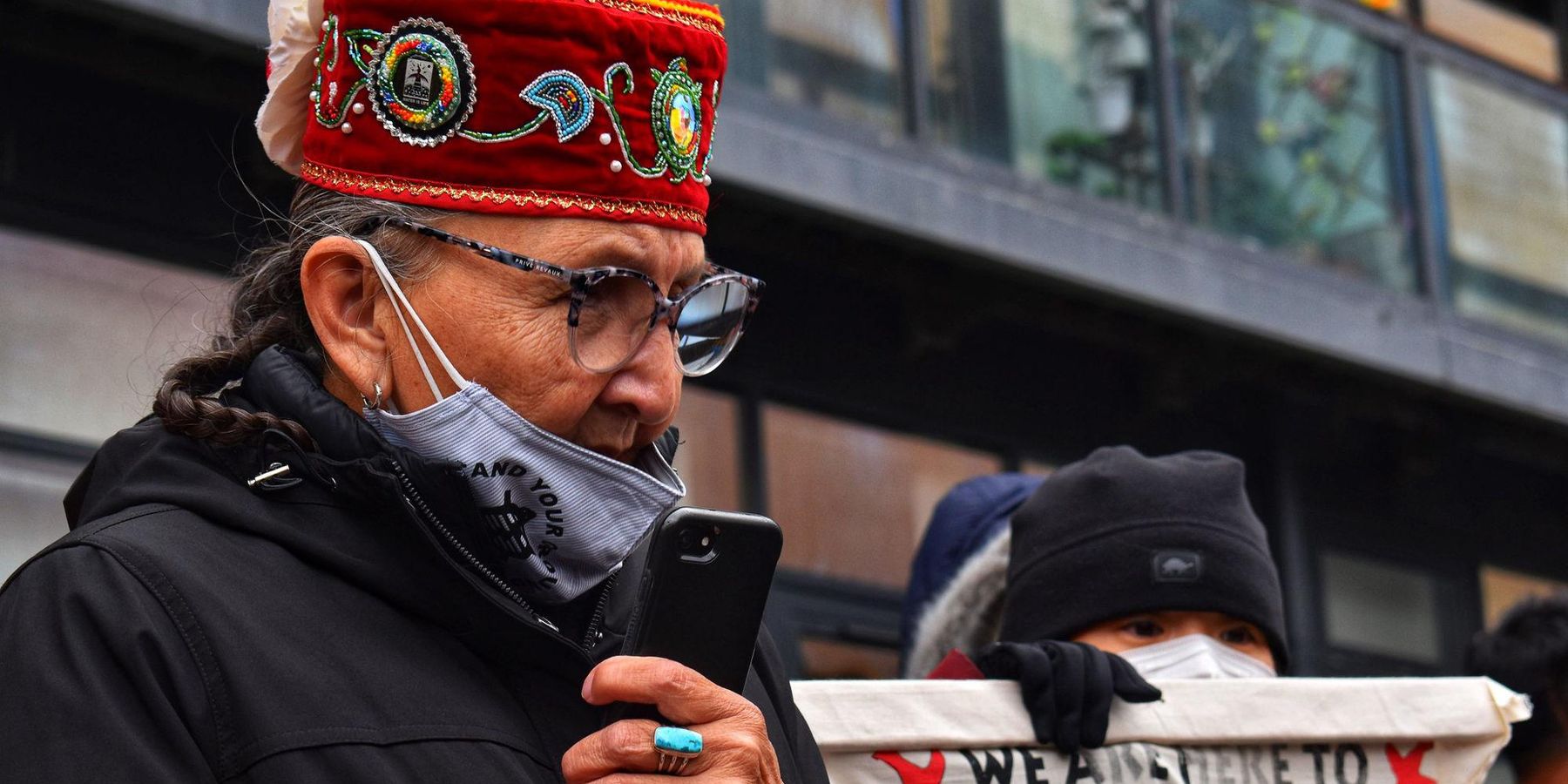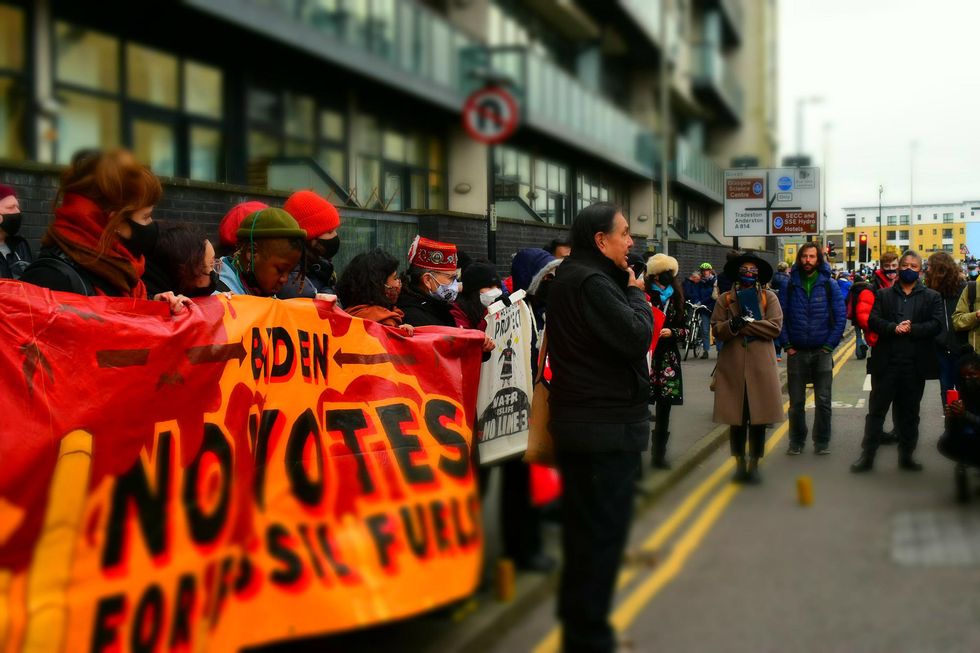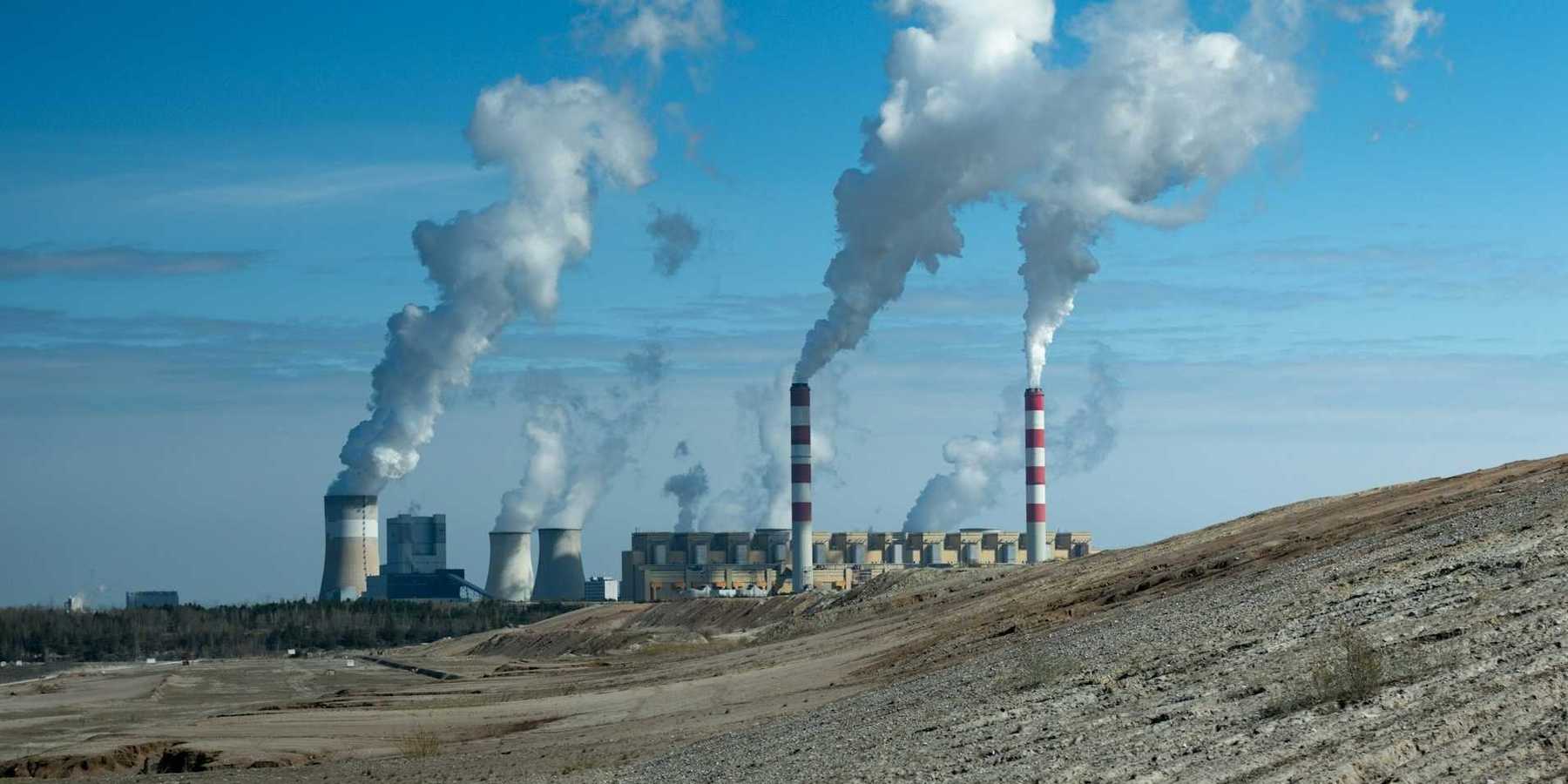
Colonialism, the climate crisis, and the need to center Indigenous voices
As world leaders gather at COP26, the lack of acknowledgment for the historical root causes of the current climate crisis has hamstrung our ability to ensure equitable climate adaptation for marginalized communities.
We are in one of the most consequential months of human history as the 2021 United Nations Climate Change Conference (COP26) is underway in Glasgow, Scotland.
COP26 commences on the heels of a damning Intergovernmental Panel on Climate Change (IPCC) report in August, the findings of which were best summed up by the United Nations Secretary-General António Guterres, who called it "code red for humanity."
The climate crisis is an existential threat to life on Earth with constant, tragic reminders of its catastrophic effects ranging from never-ending wildfires to arctic temperatures in Texas earlier this year. The common denominator of these disasters is their role in exacerbating social and health inequities, from negative health outcomes to increasing wealth gaps. Many communities, particularly Indigenous communities, have been dealing with similar challenges for decades now.
Most global climate efforts have focused on mitigation. For instance, the latest U.S. commitments to cut its greenhouse gas emissions 50%to 52% below 2005 levels by 2030, are more aggressive than previous commitments but still fall short. Climate adaptation, which focuses on responding to the changes already expected, has not seen the same amount of intellectual or financial investment as mitigation. The urgency for climate adaptation stems from a collective global leadership failure to mitigate climate change thus far, as indicated by carbon dioxide emissions surpassing 420 parts per million this April. The critical importance of climate adaptation is also underscored by major global organizations such as the World Health Organization, the Global Center on Adaptation, and the United Nations Environment Programme — emphasizing the critical need and moral imperative for climate adaptation action ahead of COP26.
There is a particular urgency for climate adaptation in Indigenous communities. Including Indigenous communities in the development of equitable climate adaptation policies is critical as some strategies, such as the relocation of entire communities, may amount to environmental genocide. However, climate policy has historically excluded Indigenous populations, even though Indigenous communities across the globe have been some of the most impacted by global warming.
It is equally important to note that Indigenous communities have had a historic — and consistent — role in climate activism. For instance, Indigenous women in Brazil are marching to protect Indigenous land from exploitation, Indigenous activists in Minnesota are working to stop the construction of the Line 3 pipeline, and First Nations in Australia are demanding a seat at the climate change decision-making table. Many innovations and real climate solutions are coming out of Indigenous communities that honor both social and ecological needs.
However, we need to contend with the root causes of climate change and environmental degradation: colonialism and capitalism. These systems originally meant to kill and dispossess Indigenous people have directly harmed the environments shaped by their stewardship. The lack of acknowledgment for these historical root causes of the current climate crisis has hamstrung our ability to ensure equitable climate adaptation for the most socially vulnerable and historically marginalized communities.
Colonialism and the climate crisis
Climate change is rooted in the exploitation and degradation of the planet, peoples, and cultures, which were the foundational principles of colonialism. Rooted in white supremacy, colonialism's impacts on current challenges and solutions to climate change are seldom explored.
From the subcontinent to Africa, and Africa to the Americas, colonialism as an ideology sought to enrich Europeans at the expense of all else while extracting resources and treating many Indigenous people as commodities. It attempted to erase centuries of place-based practices of sustainable ecosystem stewardship and governance. Many Indigenous cultures across the world required that people be responsible for and to the ecosystems around them. Colonialism was antithetical to this as it required a separation between nature and humans so wealth could be accumulated without remorse. Dehumanizing tactics were employed in order to commodify colonized people worldwide. The enslavement, subjugation, murder, and genocide that followed changed the world so much that some Indigenous people have called it an apocalypse of which Indigenous people today are survivors.
There are countless examples of colonialism destroying humans and nature including:
- The destruction of communal land and water management practices;
- French colonizers forcing Mandja people in French Equatorial Africa — modern-day Chad, Central African Republic, Republic of the Congo, Gabon — onto cotton plantations and banning their subsistence way of living through hunting;
- Commercialization of agriculture and Bengal famine in India by the British;
- German genocide of local communities in Tanganyika (modern-day Tanzania) and
- Spanish colonialism in Mexico.
American settler colonialism

Indigenous peoples' rally outside COP26 venue, Glasgow, on November 1, 2021. (Credit: Friends of the Earth International/flickr)
Settler colonialism is a particular form of colonial power that "involves the settler making a home in a land that is already home to Indigenous people." In the U.S. even movements like environmentalism have failed to challenge settler colonialism adequately. The environmentalist movement centered advocacy around the preservation of wilderness. Pulling from early colonial claims of "terra nullis," settlers continue to claim that landscapes were, are, and should be kept empty, virgin, and wild. These claims allowed settlers to oppose development in national parks and other protected areas. This came with the removal, dispossession, and exclusion of the Native American communities for which these parks and protected areas were home. Many NGOs and scientists continue using the idea of 'wilderness,' leading to work that further entrenches injustices. We risk failing to achieve climate justice by continuing to practice science, conservation, and management without a critical understanding of decolonization and climate justice.
Climate justice recommendations
To infuse justice into climate policies, we must challenge colonialism in every form. No apology can erase the West's original sins of colonization and genocide. However, an apology must be followed by tangible actions, especially in the climate change context. We offer a few brief suggestions as a way forward for governments and policymakers.
- Land reparations: The land is central to Indigenous sovereignty, health, and well-being. Access to land increases access to traditional food, cultural materials, and sacred areas. It allows for increased self-determination and an ability to build a future that is more stable. The return of land is an opportunity to return to responsible Indigenous stewardship and revitalize Indigenous science, systems of knowledge, and practices. The return of land can be done by a number of land-owning institutions and individuals via differing legal avenues. This must always be a central part of the conversation when considering collaboration with Indigenous groups on climate adaptation and resilience as giving land back is a way to invest in a just climate future.
- Land stewardship: Co-steward landscapes and give Indigenous people true collaborative power. Go beyond consultation — share decision-making, leadership, and resources. Consultation has a problematic history in Indigenous communities. Either their perspectives are ignored or they are given incomplete information. Consultation, even when done right, is an incomplete way of respecting Indigenous sovereignty, autonomy, and self-determination in collaborative situations. Creating collaborations with Indigenous people on the stewardship of the land is far more respectful, effective, and long-lasting. Sharing stewardship responsibilities can increase capacity, job opportunities, and cultural vitality in Indigenous communities.
- Sustained financing: Fund Indigenous land stewardship programs and ensure that Indigenous people have autonomy over spending decisions. Short-term funding can create unstable economies and high pressure on acquiring more grants. Shifting to long-term funding allows for stability in jobs, projects, and community benefits.
- Indigenous decision-making: Climate adaptation and mitigation also require adaptive decision-making. Indigenous communities have provided incredible models for ensuring collective decision-making is responsive to environmental change. Support and uplift Indigenous leadership in changing policymaking to be more adaptive to environmental changes.
- Indigenous science: One of the best ways policymakers can achieve social inclusion and equity in climate policies is by valuing Indigenous wisdom without appropriating it. The deep geographic and ecological understanding of landscapes, that some have called Traditional Ecological Knowledge (TEK) or Indigenous Science, has been central to community resilience and adaptation of Indigenous communities. TEK is described as "the knowledge held by Indigenous cultures about their immediate environments and the cultural management practices that build on that knowledge." Indigenous science and knowledge hold critical answers to many environmental problems including climate adaptation.
We must move forward with humility, a commitment to unlearning our narrow way of thinking, and learning from Indigenous people who have been stewards of the land since time immemorial if we are to recast the existential challenge of the climate crisis as one of hope and action instead of mass death and despair that will be the inevitable outcome of climate inaction.

Deniss Martinez M.Sc is a Ph.D. candidate in the Graduate Group in Ecology at UC Davis. The purpose of her dissertation is to find strategies for California Native communities and their collaborators to create governance and collaborative mechanisms that support Tribal self-determination and governance. She is a former Agents of Change in Environmental Justice fellow.

Ans Irfan, MD, EdD, DrPH, MPH is a global environmental public health scholar-practitioner with an action-oriented multidisciplinary applied research portfolio focusing on social, racial, and health inequities. He teaches at Milken Institute School of Public Health and serves as the Director of Climate & Health Equity Practice Fellowship. He is currently based at Harvard Divinity School, Harvard University. He is a former Agents of Change in Environmental Justice fellow.
Their views do not necessarily represent those of Environmental Health News, The Daily Climate, or publisher Environmental Health Sciences.
Banner photo: Indigenous peoples' rally outside COP26 venue, Glasgow, on November 1, 2021. (Credit: Friends of the Earth International/flickr)













